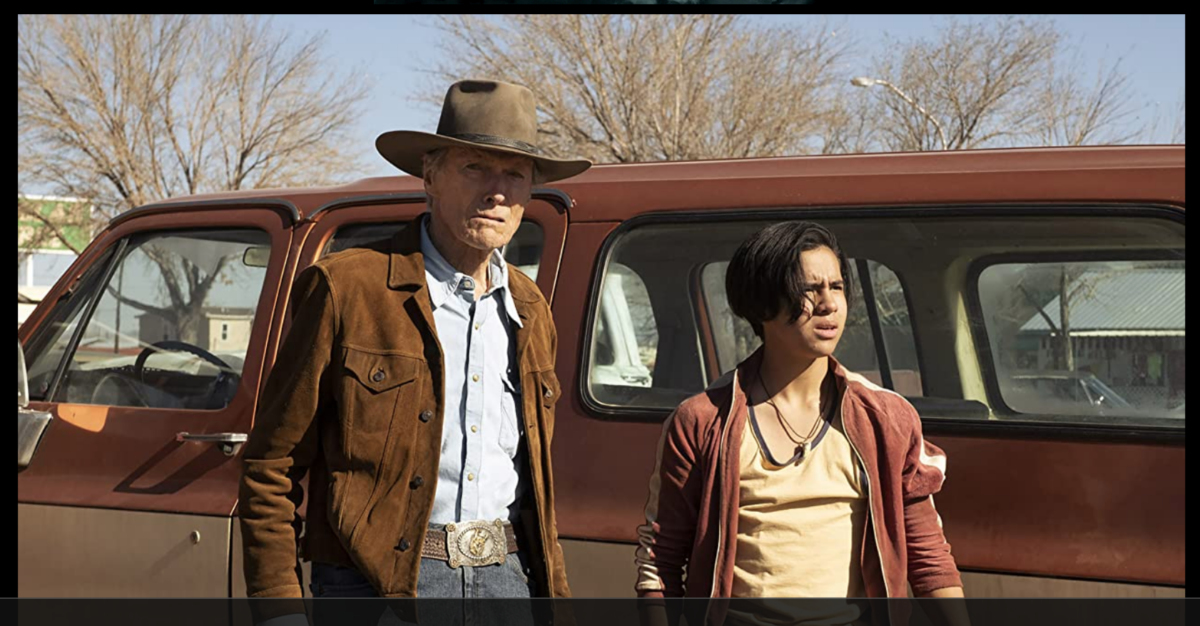By Laurie Coker
Rating: C-
Clint Eastwood’s filmmaking in front and behind the camera is legendary and iconic. He has created unique, memorable characters and directed impressive films. Now in his 90’s, the veteran is still drawing at the box office, but perhaps, this is the time to sit back and enjoy his later years. ‘Cry Macho,’ his latest venture into directing (and starring), lacks the passion and story intensity of his past efforts.
Eastwood plays Mike Milo, a former star rodeo cowboy charged by his boss, Howard Polk (Dwight Yoakam), to travel to Mexico to retrieve his teenage son, Rafo (Eduardo Minett). Polk’s alcoholic ex-wife, Leta (Fernanda Urrejola), who seems to dislike the boy, sends her crazy henchmen to stop them, seemingly caused by Milo’s rejection of her sexual advances (yes, she attempts drunk sex minutes they meet). On the surface, aspects of the premise sound like typical Eastwood, and we expect chases and showdowns, but in reality, ‘Cry Macho’ plays out more like a buddy film. Even with the few confrontations and intriguing characters, the story fails to provide any genuine excitement. There are a few skirmishes (very few), but at 91, Eastwood is neither capable nor believable, facing off with far younger adversaries.
Behind the camera, Eastwood demonstrates his talents well – he sets the perfect backdrop and fleshes out his co-leads nicely. I want to interject that Eastwood’s version of the border is laughable – a swing gate and a stop sign in the middle of nowhere. As the Milo, we see him more behind the wheel than interacting. We do, however, get the gravel-voiced hero to a degree. He and Minett have limited chemistry, and their characters don’t warrant our care. This is no action-packed Eastwood film. Imagine spending three weeks in a dusty, tiny Mexican town with minor diversions – thankfully, Eastwood keeps the entire movie short. While in the village, Milo meets Marta (Natalia Traven), and the pair strike up an odd relationship that delays their trip to meet Polk at the Texas/Mexican border. Eventually, they make the exchange, and Milo returns to Marta, leaving Rafo (and his rooster, Macho) with his dad.
Organizationally, the movie flounders in a transparent tale of redemption, and it lacks the vitality of past Eastwood efforts – a sign of his age, perhaps. Without a solid connection between Minette and him, the dialogue, meant to be endearing, feels forced and strange. Any humor seems mostly unintentional, like watching Eastwood stumble through a romantic dance scene where his partner appears to be propping him up. I suppose the pacing and sluggish feeling of the film projects can be attributed to the age of its director/star. I am placing a C- in my grade book. ‘Cry Macho’s’ most energetic and intriguing character is the rooster.
